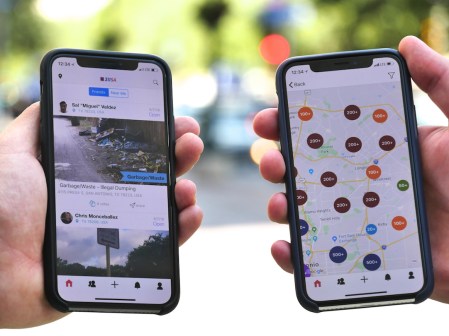Virginia capital replaces 311 service line with cloud-based, IoT-capable website and mobile apps

Beginning Friday evening, Richmond, Virginia, will replace its non-emergency 311 service line with a new, cloud-based service that city officials say will help residents and businesses connect better with local agencies.
The new service, named RVA 311, will replace a call center that’s only open 10 hours a day, Mondays through Fridays, with digital tools accessible around the clock.
“We’ve not had a full-scale, self-service portal where a citizen can request something from public works or social services,” said Krystal Onaitis, a program manager in the Richmond city manager’s office.
RVA 311 is being developed by the software vendor AvePoint, which maintains a 100-person office in Richmond. In the new service, users visiting RVA311.com will create accounts and make service requests that they can track as they’re fulfilled. On the back end, workers in Richmond’s new Department of Citizen Service and Response will field requests using the same software as the customers.
Onaitis said she anticipates the new platform will greatly increase the number of service requests from residents and businesses, but also make them easier to manage. The current 311 line fields anywhere between 2,000 and 5,000 calls per week, she said, with the greatest volume coming in late winter and early spring as people inquire about paying taxes and getting potholes filled. But Onaitis expects those figures to surge year-round on RVA 311 as the new service is built out with answers users can find without having to place a phone call.
“We’re going to have more than 90 request types,” she said. “We have 140 FAQs built into the tool. A lot of them are built around zoning information, renewing business licenses and the like.”
Five city departments — public works, public utilities, finance, planning and the police — will be responsive to RVA 311 to start, Onaitis said, with more agencies to be added later this year.
RVA 311 is also costing Richmond nothing to start. AvePoint donated the platform and support for the first three years and three months — valued at about $1 million, Onaitis said. The service is launching first as a website designed to be responsive to phones and tablets, and standalone apps for iOS and Android are expected in July. Longer term, the service might be updated with chatbots, Skype conversations and integrations with other internet-connected devices.
AvePoint developed RVA 311 off its Citizen Services software, a Microsoft Azure cloud-based platform sold to governments and large organizations to manage constituent requests. Among its other customers are the United Nations, which uses the technology to manage human trafficking cases.
Paul Olenick, AvePoint’s director of product strategy, said Richmond is using a version of Citizen Services that’s a hybrid of a cloud program and a software-as-a-service. One feature is that Richmond officials will be able to consolidate all the data coming in off RVA 311 in built-in dashboard that offers a near-real-time view of their operations. That should make fulfilling citizen requests easier, Olenick said.
“With the existing system, if the constituent submitted a request, they had to type in their address, but once it made it to the folks who are supposed to handle it, they couldn’t resolve it against their GIS system,” Olenick said. “It’s little things like that that slowed them down and made a worse experience for constituents.”
In the new system, addresses will be auto-completed as users type them in on the same GIS system that the response team will use. And while Richmond officials and AvePoint are trying to push as many users as possible toward the website, people will still be able to submit their requests by phone to the same center that’ll be fielding the digital tickets.
“One of the tenets of the design process was this idea of ‘no wrong door,'” Olenick said. “Whether it’s my 16-year-old niece who does everything on her smartphone or my 86-year-old mother-in-law who likes to walk into city hall and shake her cane.”





